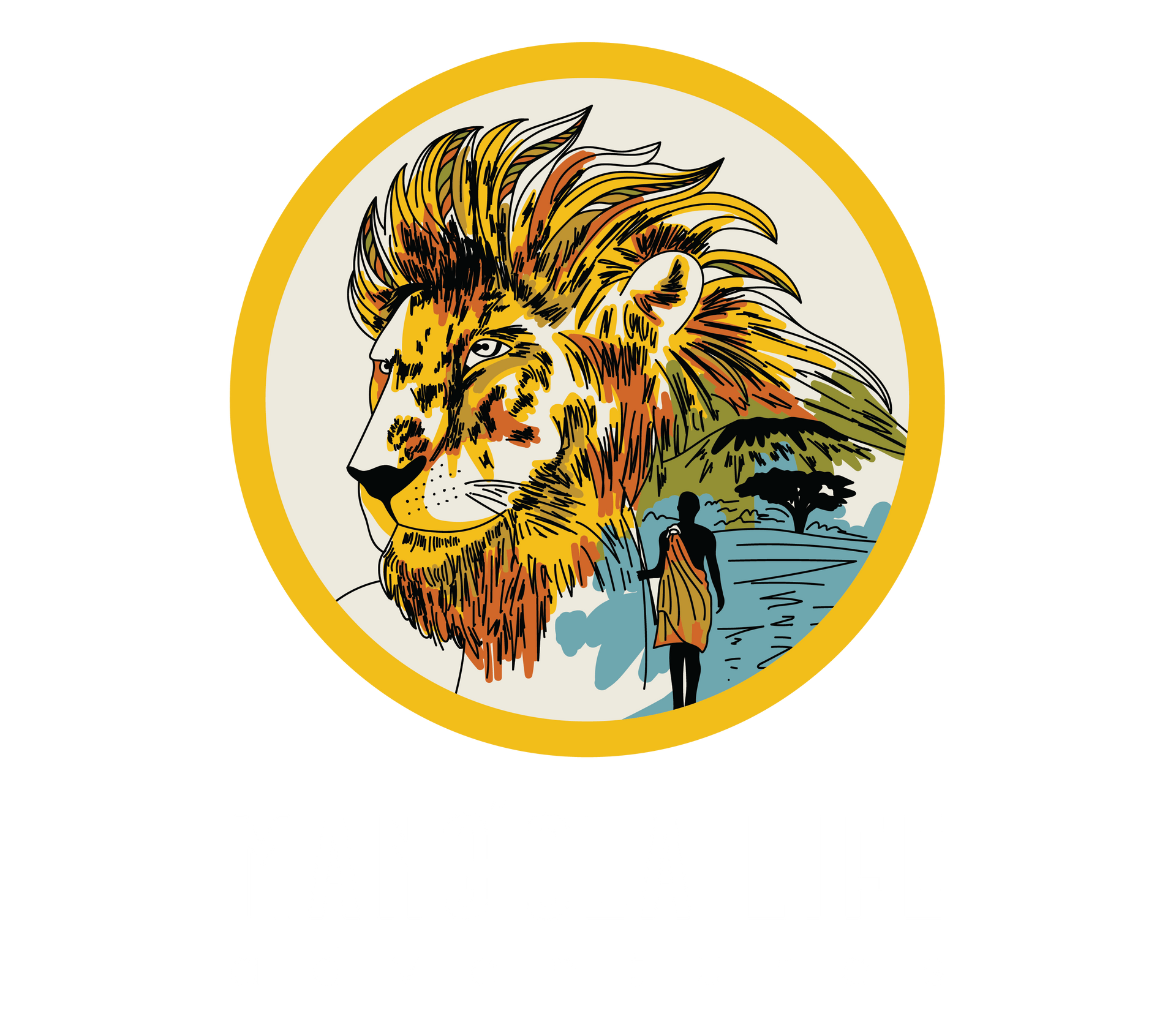What to buy in Tanzania: markets, crafts & meaningful souvenirs
Some things you carry home in your suitcase. Others you carry in your soul. Shopping in Tanzania is less about collecting and more about connecting—to story, to culture, to craft, to meaning. Every object has a maker. Every purchase has a ripple. And when you shop with intention, the gifts you take home are only part of the journey.
At Mang'ola Life, we design journeys that go beyond the surface. That means we don’t just show you where to go; we invite you to slow down and engage. In the markets, in the stalls, in the hands of local artisans, you’ll find more than souvenirs. You’ll find connection. The art of shopping becomes an act of listening. Of honoring traditions. Of building bridges between travelers and communities.
Is Tanzania good for shopping?
Yes—if you’re looking for meaning, not malls. Tanzania is not a shopping destination in the traditional sense. It won’t overwhelm you with brands or chain stores. But it will offer you something rarer: handmade goods rooted in heritage, crafted with skill, and sold with heart.
You can find treasures in the vibrant markets of Dar es Salaam, the artist co-ops of Arusha, and the quiet roadside stalls outside national parks. Whether you're seeking art, textiles, spices, or simply a deeper understanding of place—Tanzania has something to give you. If you know how to receive it.
Local markets in Tanzania: a window into culture
There is no better way to understand Tanzanian life than to walk through a market. Here, the senses guide you: the scent of spices, the texture of woven fabrics, the rhythm of conversations, the colors that seem to vibrate in the sunlight.
Markets are more than places of commerce. They are centers of exchange—not just of goods, but of smiles, stories, and connection. Each stall is an invitation. Each item, a glimpse into lived experience.
Highlighted markets in Dar es Salaam and Arusha
Darajani Bazaar (Stone Town, Zanzibar)
Chaotic, colorful, alive. Here you’ll find everything from spices to seaweed soaps to handcrafted jewelry.
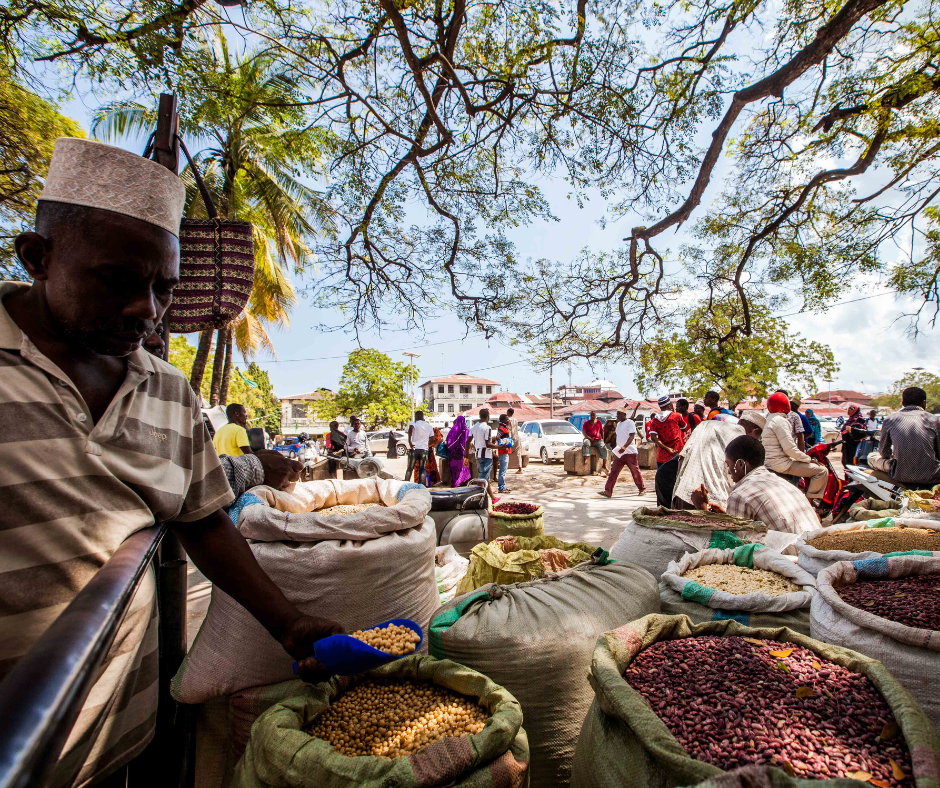
Maasai Market (Arusha)
A rotating outdoor market featuring Maasai artisans and a mix of local vendors selling beadwork, batiks, and more.
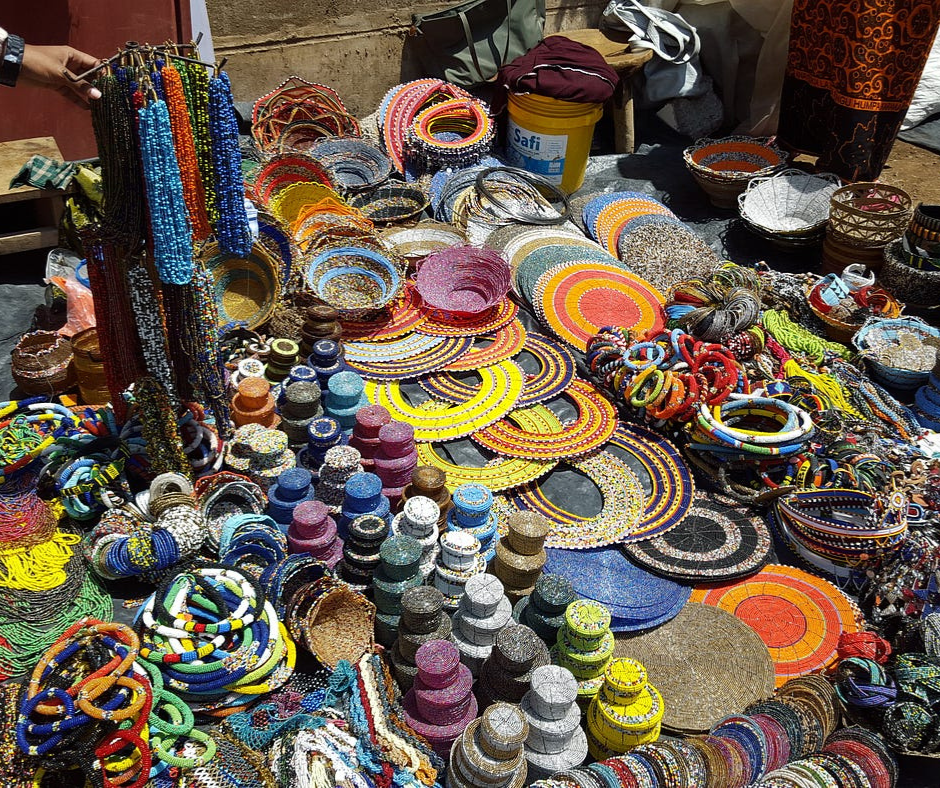
Shanga Foundation (Arusha)
A beautiful social enterprise supporting people with disabilities who create high-quality handmade products.
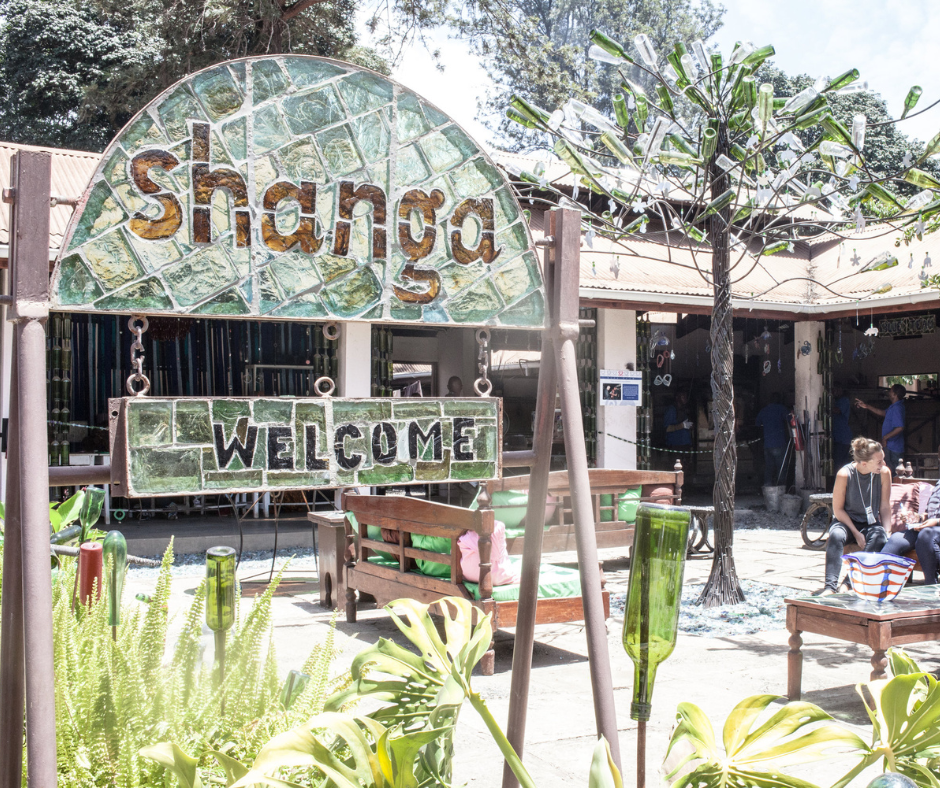
Masal Central Market (Mto wa Mbu)
A true community hub, perfect for observing local life and finding unexpected treasures.
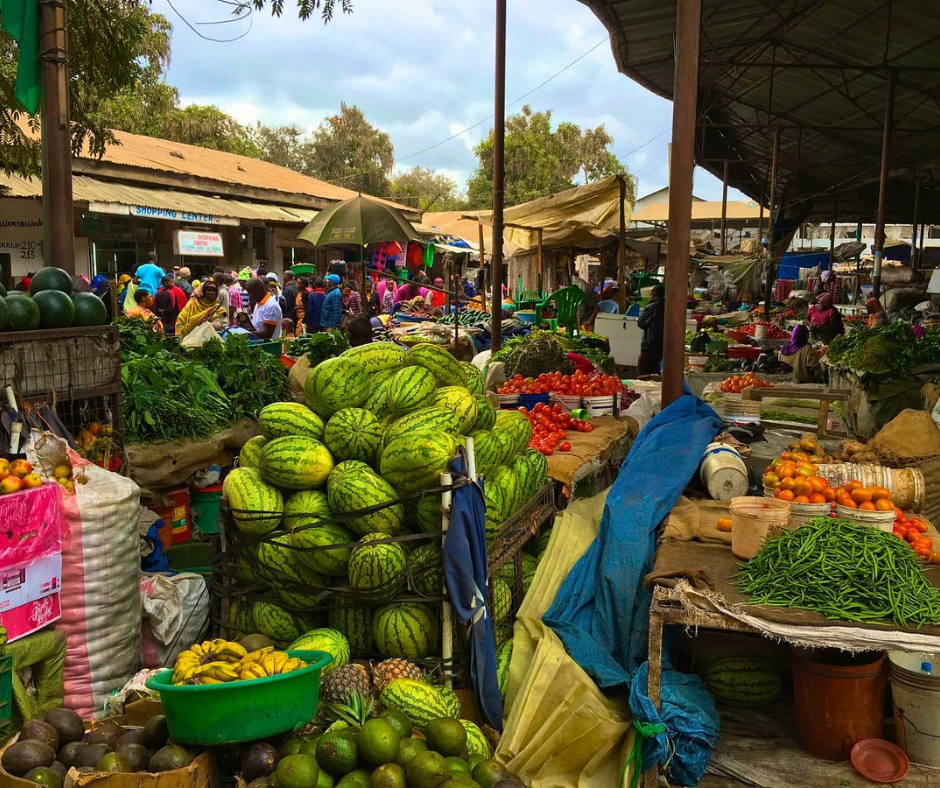
Darajani Bazaar (Stone Town, Zanzibar)
Located in the heart of historic Stone Town, this vibrant market offers everything from fresh produce and spices to handmade soaps and colorful fabrics. The scents alone—cloves, cinnamon, dried fish—tell stories of Zanzibar’s spice trade legacy.
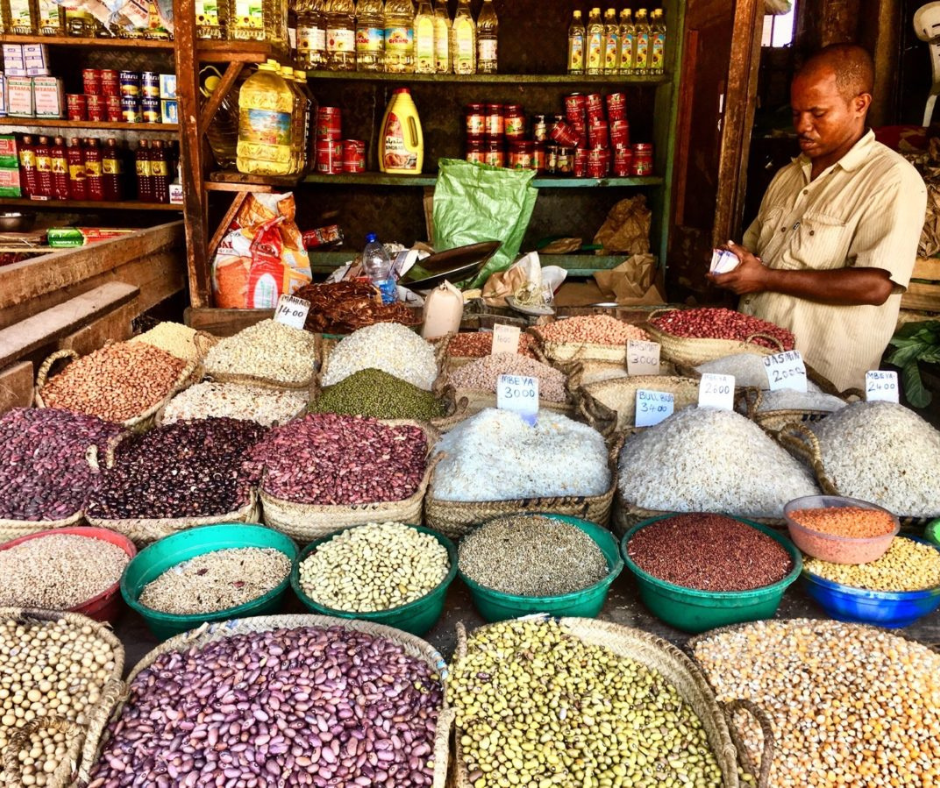
Kariakoo Market (Dar es Salaam)
One of the largest markets in East Africa, Kariakoo is a bustling maze of energy where locals shop for clothes, electronics, groceries, and daily essentials. It’s chaotic, crowded, and full of life—a raw look into urban Tanzanian commerce.
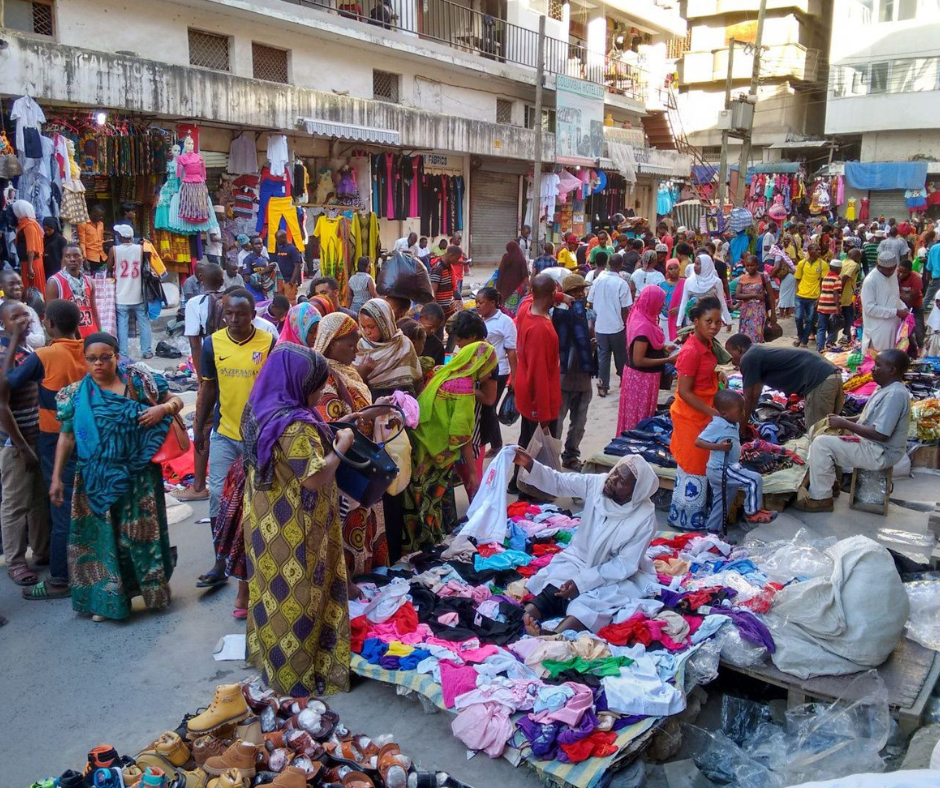
Kivukoni Fish Market (Dar es Salaam)
A sensory experience right by the Indian Ocean. Fishermen unload their daily catch while locals haggle over fresh seafood. It’s a powerful snapshot of coastal Tanzanian life and food culture.
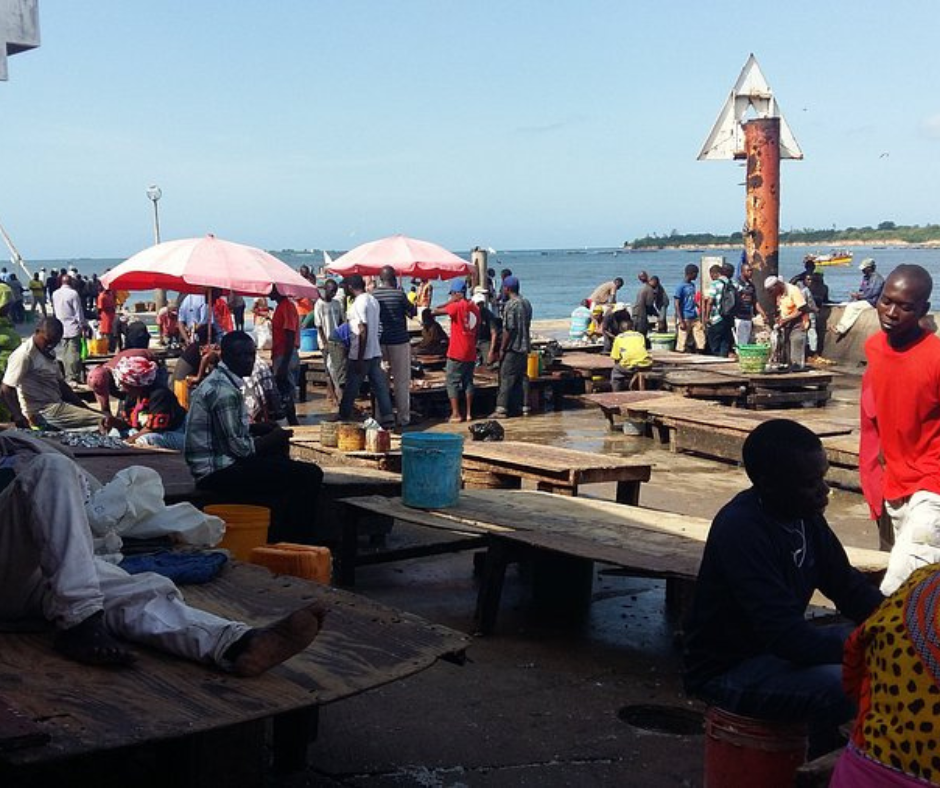
Tips for an authentic shopping experience and shopping at local markets
Authentic shopping is about presence. It’s about being more than a consumer—being a guest, a listener, a learner.
Supporting the local economy and sustainability
- Buy directly from artisans or cooperatives. This ensures your money goes to the hands that made the item.
- Look for handmade over mass-produced. If every stall has the same product, it’s probably not local.
- Ask about the story behind the item. Who made it? What materials were used? What does it represent?
- Carry cash in small bills. It’s more respectful and practical.
- Be generous when possible. Not to overpay, but to value the time and artistry involved.
- Avoid bargaining for sport. Instead of negotiating aggressively, consider asking, "What is a fair price for both of us?"
10 meaningful items to bring home from Tanzania
Each of these items carries the spirit of place. They aren’t just beautiful—they’re rooted in culture, crafted by hand, and rich in symbolism. They’re reminders of your journey, and of the hands that helped shape it.
1. Maasai beadwork and textiles
Intricate beadwork is at the heart of Maasai identity. Every pattern tells a story: of age, status, occasion. Supporting local women’s projects like the Esalali Women’s Project in Karatu ensures your purchase uplifts a community. These pieces are wearable heritage.
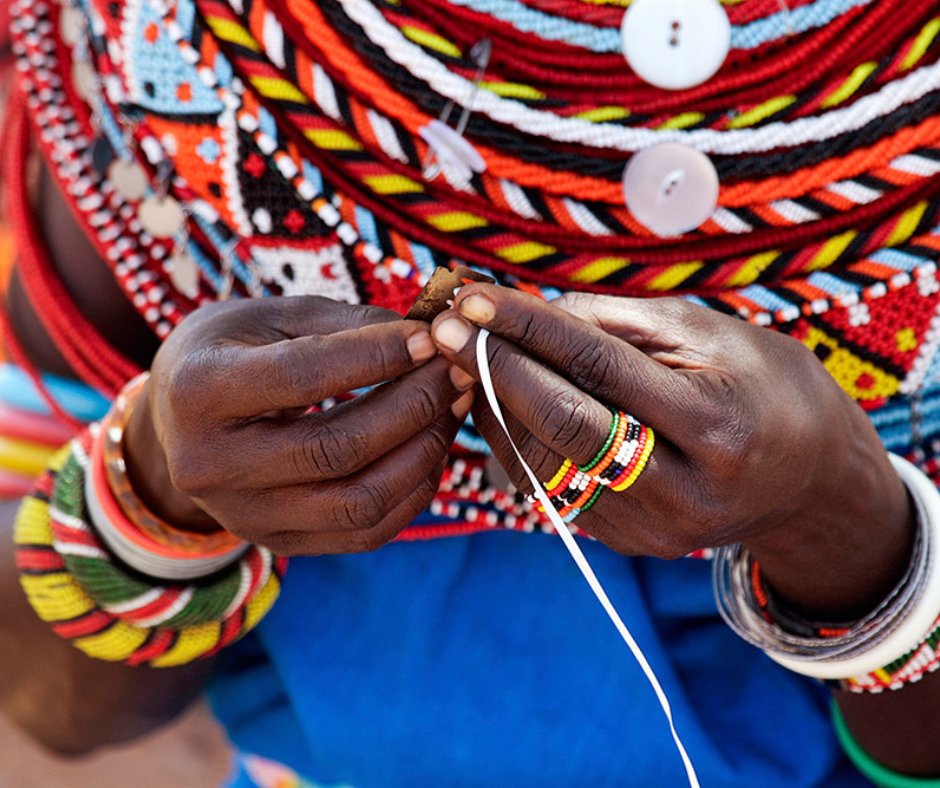
2. Makonde wood carvings and traditional masks
Makonde artists are known for their abstract carvings and storytelling masks. Often carved from ebony, these pieces reflect ancestral traditions and are passed from generation to generation. Buy from verified sellers to avoid replicas and ensure ethical sourcing. Each carving holds a chapter of oral history.
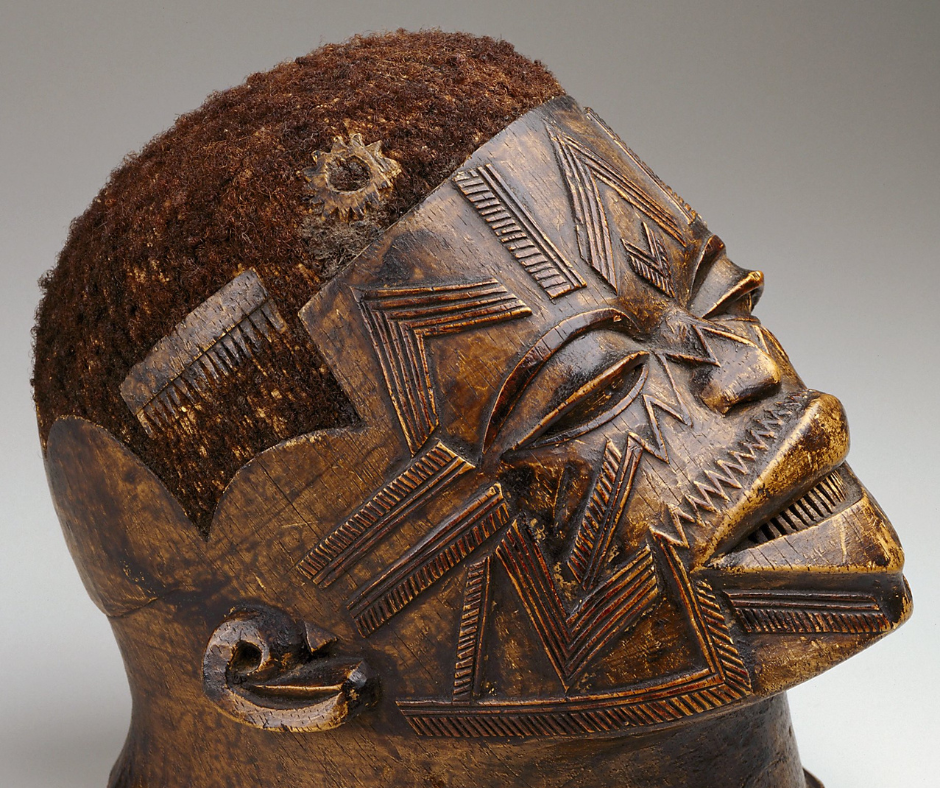
3. Handwoven baskets and bags
Made from natural grasses or sisal, often dyed with local plants, these items are both beautiful and practical. Many are made in women-led cooperatives that rely on this income for education and healthcare. Their textures tell of patient hands and time-honored techniques.
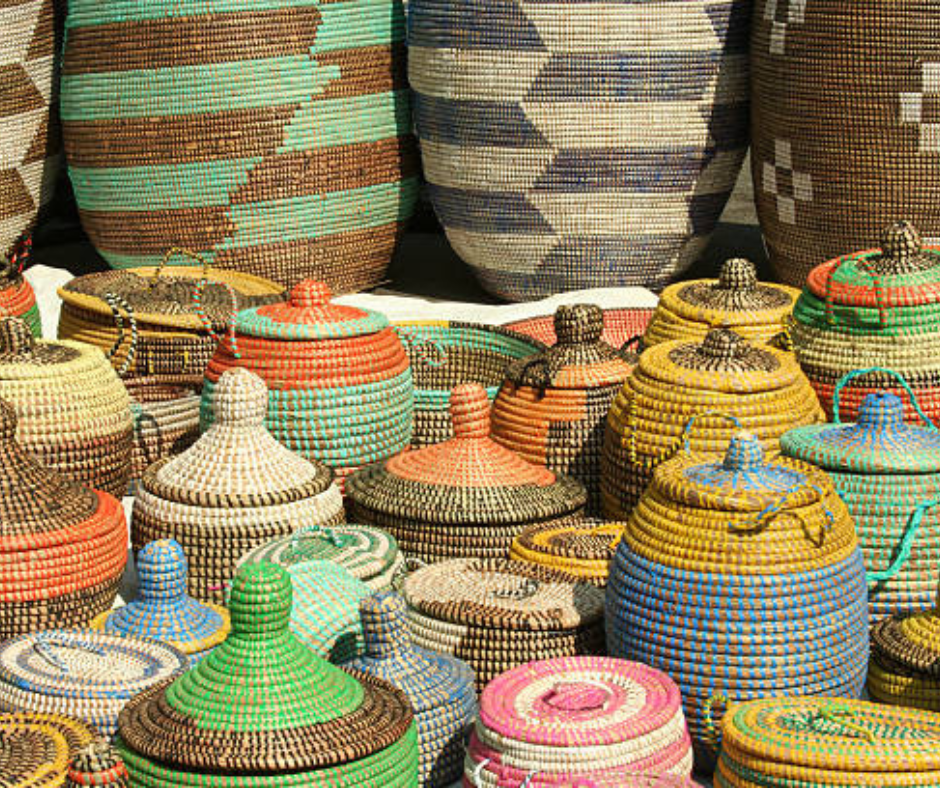
4. Kitenge and kanga fabrics
These bright, patterned fabrics are worn every day across Tanzania. Kanga often includes Swahili proverbs, while kitenge is used for everything from skirts to headwraps. Visit a local tailor to turn your fabric into something custom. These fabrics speak in color and poetry.
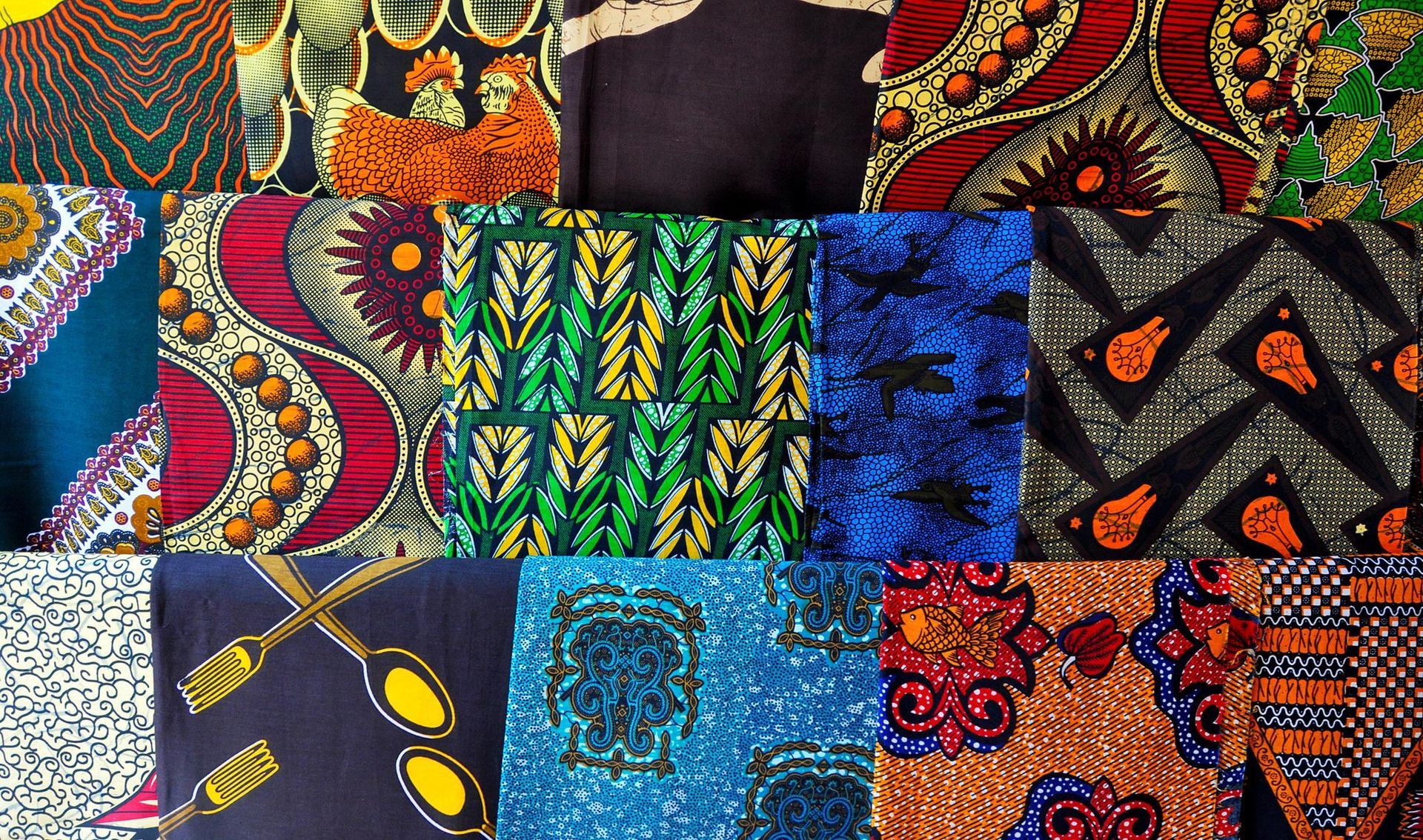
5. Tanzanite
This rare violet-blue gem is only found near Mount Kilimanjaro. If you choose to buy Tanzanite, seek out ethical, small-scale sellers like Blue Zebra in Moshi, who focus on traceability, transparency, and fair wages. Tanzanite is not just rare—it’s rooted in the land.
But it’s important to note: not all that glitters supports good. Many tanzanite mines in the region have faced scrutiny for unsafe working conditions, environmental harm, and labor exploitation. That’s why buying from socially responsible vendors matters. Look for businesses that invest in miner safety, avoid child labor, and ensure that profits benefit local communities—not just global supply chains. A conscious purchase turns a souvenir into a statement of solidarity.
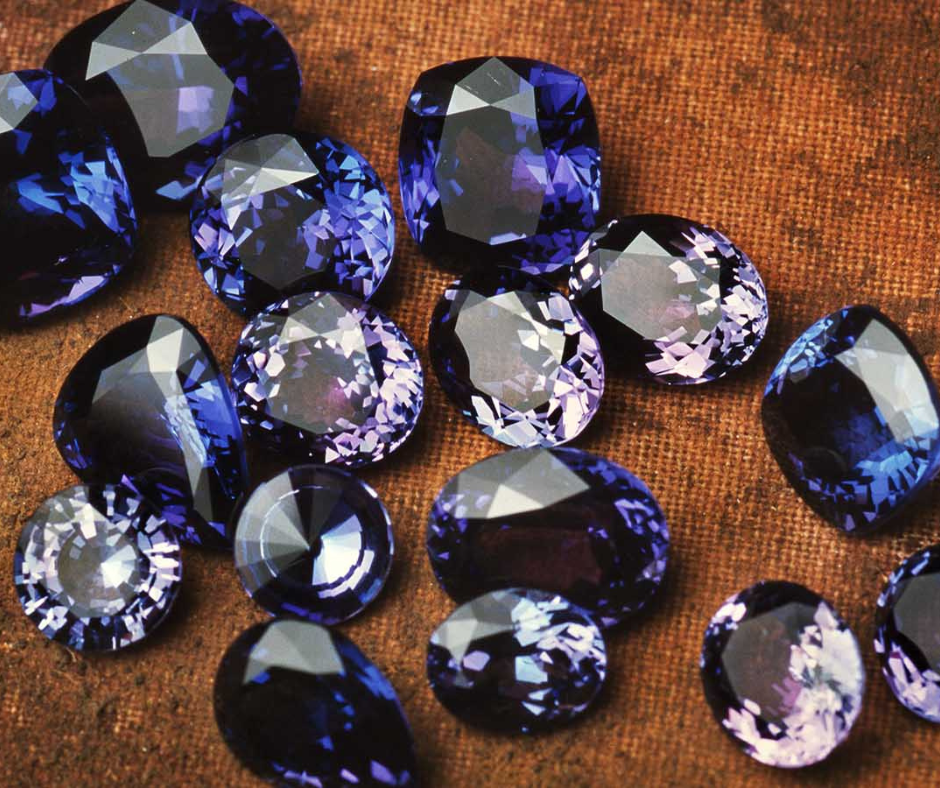
6. Paintings and batik art
Tingatinga-style paintings are vibrant and full of movement. You can also find beautiful batiks made with wax-resist dyeing techniques. Visit artist collectives for pieces made with heart and originality. These works carry the pulse of modern East African expression.
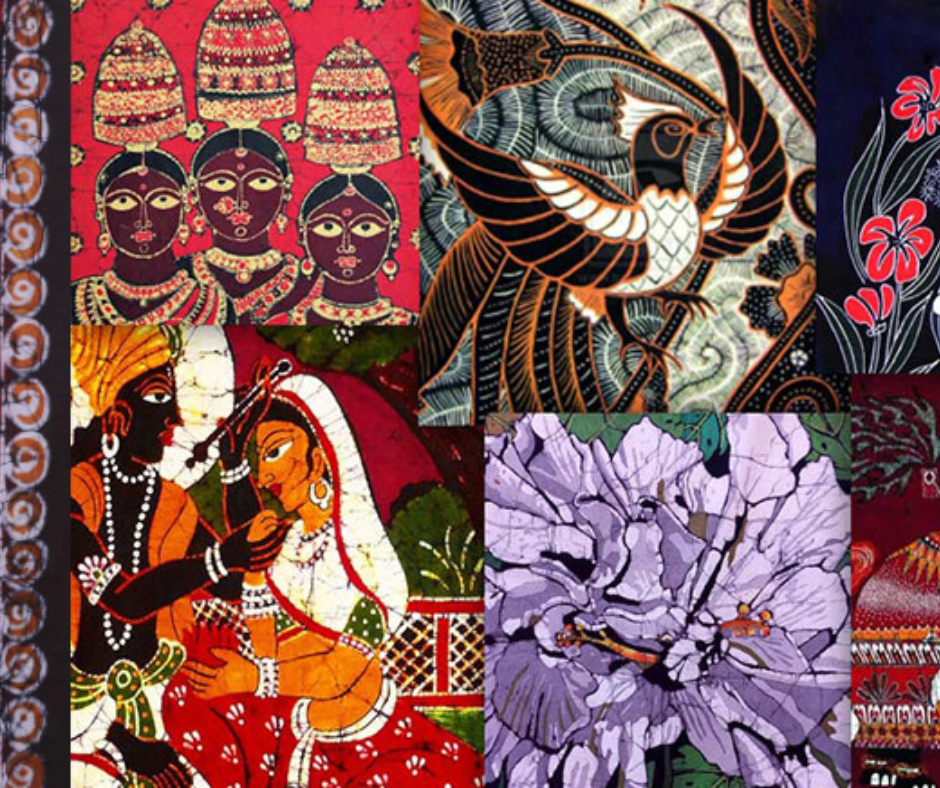
7. Jewelry made from recycled or local materials
Many artisans use bottle caps, old coins, scrap metal, or locally sourced stones to create unique designs. These pieces not only express creativity, but reduce waste and celebrate resourcefulness. They’re adornments with a conscience.
A beautiful example? The Datooga bracelets—crafted from melted scrap metal and reshaped into bold, symbolic jewelry. Each piece tells a story of resilience, reinvention, and tradition passed down through generations.
8. Handmade soaps and skincare
Natural soaps made with seaweed, coconut oil, or cloves are common in Zanzibar. Some include local herbs like neem or moringa. Choose small, locally owned brands with transparent sourcing. These items let you take a little wellness home.
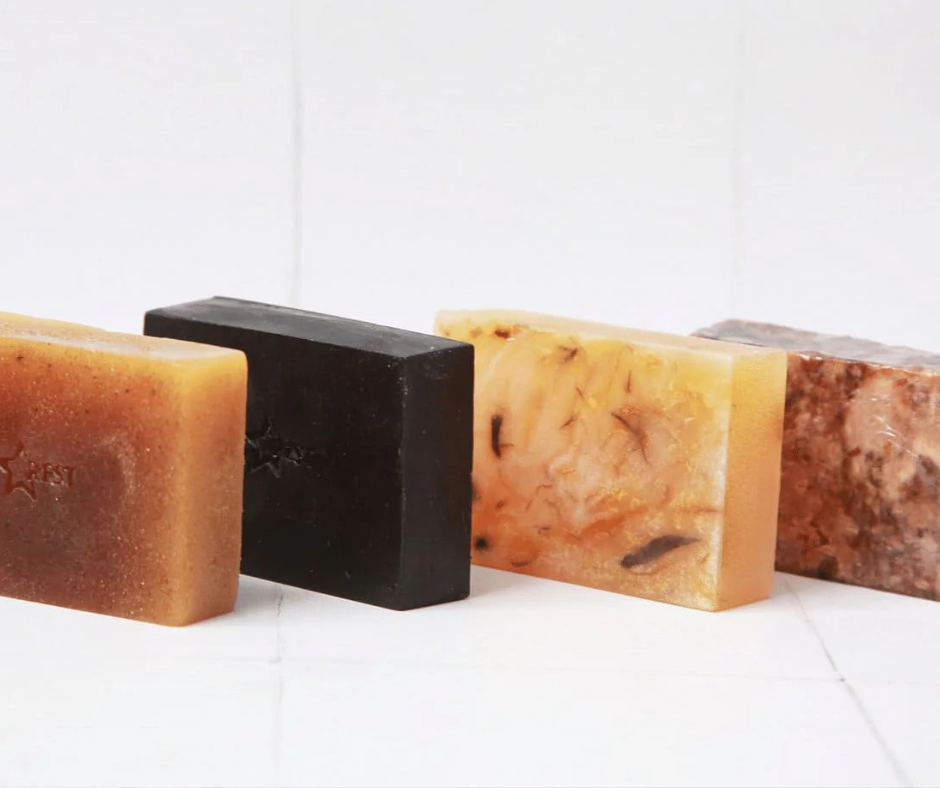
9. Spices from Zanzibar
Zanzibar is known as the Spice Island for good reason. Vanilla, cinnamon, cloves, and cardamom are all grown here. Buy from spice farms or markets that offer tours and explanations of how spices are grown. Their scent will carry you back.
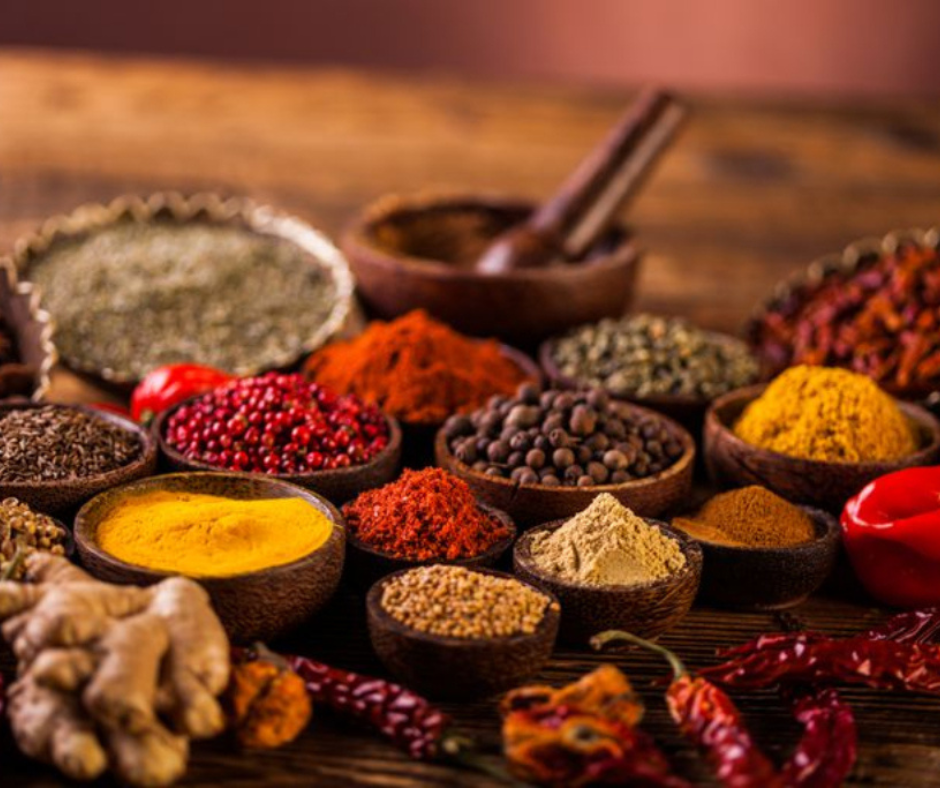
10. Locally made woven sandals or leather goods
Crafted with skill and designed for function, these items blend durability and style. Many are made by hand with traditional techniques passed down through families. A pair of sandals can hold a thousand steps.
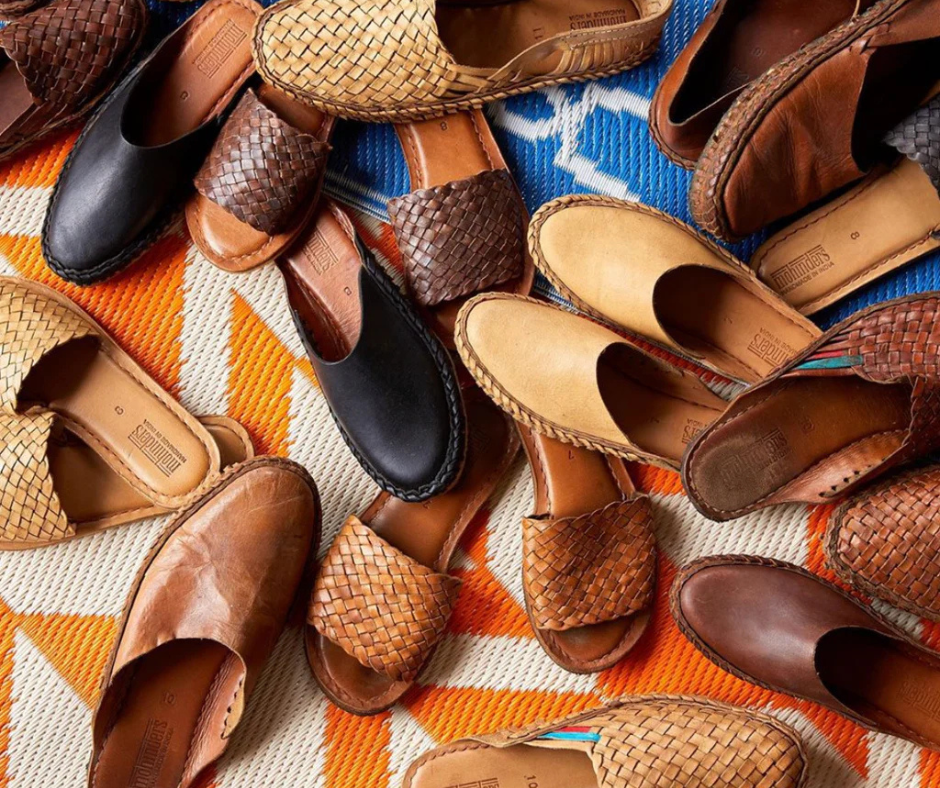
Local food: Tanzanian spices and coffee
Local spices: an explosion of flavors
Tanzania’s spices aren’t just ingredients—they’re stories. In Zanzibar, spice tours are as educational as they are sensory. Buy whole spices when possible and ask sellers how they use them in local dishes. Cloves, cinnamon, cardamom, turmeric, and nutmeg are staples in Swahili cuisine. You’ll taste them in dishes like pilau (a fragrant rice with meat and spices), zanzibar biryani, and spicy coconut curries. These are gifts that nourish—both the body and the bond between land and culture.
Tanzanian coffee: an aromatic experience
Coffee in Tanzania isn’t just a drink—it’s a ritual rooted in volcanic soil and community care. Grown on the fertile slopes of Mount Kilimanjaro in the north and the highlands of Mbeya in the south, Tanzanian Arabica beans are known for their bright acidity, floral notes, and smooth, full-bodied flavor.
When shopping for coffee, look for single-origin beans from cooperatives like KNCU (Kilimanjaro Native Cooperative Union) or Mondo Coffee, which work directly with smallholder farmers and reinvest in local education, infrastructure, and fair wages. Many roasters in Arusha, Moshi, and Dar es Salaam will let you taste before you buy, and some even offer tours where you can learn about the harvest and roasting process.
Whether you’re bringing home whole beans or a fresh-ground blend, every cup tells the story of altitude, soil, and the hands that nurtured it. It’s a souvenir that warms more than just your mornings—it supports an entire ecosystem.
Things we don't recommend buying (a list)
What not to buy—and why it matters
Not every souvenir tells a story worth sharing. While it can be tempting to pick up a striking object at a market stall or airport shop, it’s important to understand the impact behind your purchase. Here’s what we suggest avoiding—and why:
- Products made from endangered species (ivory, coral, turtle shell)
These items often come from illegal or unethical wildlife trade. Even if they’re labeled as “vintage” or “locally sourced,” purchasing them supports poaching and environmental harm. Tanzania’s wildlife is precious—let's help protect it, not commodify it. - Mass-produced trinkets that don’t reflect Tanzanian culture
Many “souvenirs” are actually imported or manufactured far from the communities you visited. They lack authenticity, and the profit rarely stays local. If it looks identical to something you'd find in a tourist trap anywhere in the world—it probably is. - Fake antiques or “aged” artifacts
These items are often artificially weathered to appear valuable or ancient, but have no cultural or historical significance. Worse, some are falsely marketed as sacred objects. This not only disrespects local traditions, but exploits them for profit. - Anything that feels disconnected from place or people
If you don’t know who made it, where it came from, or how it was produced—it’s worth asking. Souvenirs should celebrate real stories and relationships, not just aesthetics.
Bring home more than souvenirs—carry stories, culture, and connection
Every handcrafted piece, every spice wrapped in brown paper, every woven thread carries the spirit of Tanzania. When you choose to shop consciously, you’re not just taking something home—you’re giving something back.
Let your journey be rooted in meaning and connection—not just consumption or souvenirs. Choose gifts that tell stories, support people, and honor the land that welcomed you.
Discover a different way to travel, one that supports local hands, honors tradition, and invites presence at every step.
Start your soulful safari with Mang’ola Life—and return home changed.

Welcome to Mang'ola life we are a sustainable safari company located in the heart of Tanzania, Africa. Plan your next adventure with us.






